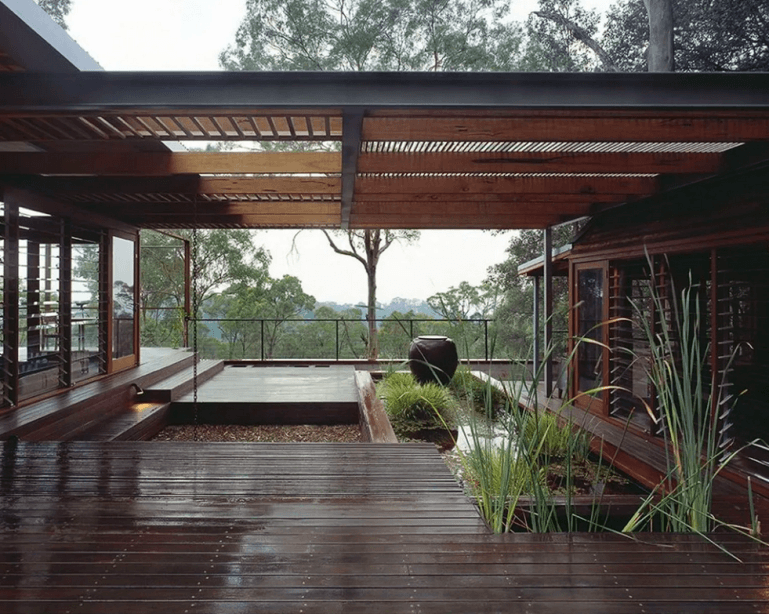

28.01.2022
Last week, Le Commerce du Bois presented the results of a study conducted by Jean-Marc Mornas on the evolution and prospects of the wood decking market in France: "2017-2022 evolution, 2021 estimate and 2025 prospects". ATIBT proposes here a focus on the tropical wood decking market.

The objective of this study is to provide, on the basis of about thirty interviews conducted with the main actors in the sector (manufacturers, importers, distributors, architects, etc.), a global analysis of the market. It takes into account all finished wood and derivatives decking products, softwood, tropical wood, hardwood and composite decking. The result is a market of 16 million m² sold in 2021, steadily increasing since 2015 with an unprecedented acceleration between 2019 and 2021 (+34%), due to the health crisis and the increase in home improvement work. With continued growth of over 10% per year, professionals are counting on sales that could reach 25 million m2 by 2025.
Beyond the unprecedented context of the pandemic, wood decking is increasingly in demand by consumers because it responds to growing ecological concerns that encourage consumers to use natural products. Outdoor living spaces, gardens, balconies and terraces have become living spaces in the same way as indoor spaces, and consumers are looking for quick solutions that allow them to make these places their own, with the construction of a decking perceived as very accessible.
In the non-residential new construction sector, wood decking (terraces, walkways, outdoor wood furnishings) could be positioned as a biosourced component with high environmental performance. Nevertheless, as tropical wood is not popular in public procurement, information and communication work to inform public decision-makers of the technical and environmental qualities of tropical species is fundamental.
While softwood decking is mostly used and represents more than 60% of sales to reach 10 million m² sold in 2021, tropical wood decking is maintained in 2021 at 3 million m² sold, with a 33% increase in sales since 2019. It has the advantage being very durabe without prior treatment and maintenance due to its resistance to insects and moisture. These qualities make it an ideal material for decking, whether in dry or wet environments. Another advantage is that exotic species are very resistant to fire, but also to frost and cracks. Their ease of maintenance is a significant asset in promoting the choice of a tropical wood decking to buyers. In addition, exotic wood is appreciated for its appearance and its beautiful shades. These species have beautiful aesthetics, coloring and graining that make them recognized materials for their natural beauty.
Despite the misrepresentation of tropical timber, the good news for the decking market is that this negative image is not causing a shift in demand, the study notes. Note that this market is supported by an offer of FSC and PEFC certified wood products, guaranteeing responsible production methods. The tropical species most used in decking remain ipe and cumaru, but the species tend to diversify with African species such as padouk.
A selection of African species for a tropical wood decking :